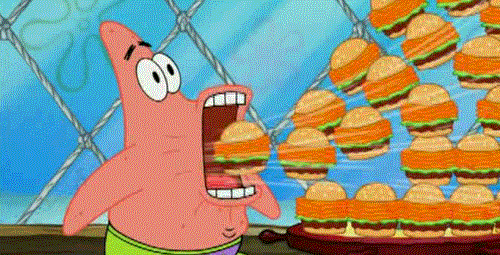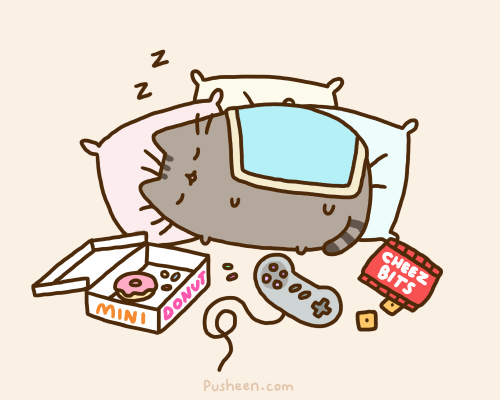“I’ll sleep when I’m dead.”
Unfortunately, this statement is far too familiar to most Americans. Many of us knowingly push sleep aside although we realize it’s bad for us, but we usually brush off the health consequences that come with sleep deprivation. We have to realize that “being tired” isn’t the harshest effect too little sleep has on us. Losing a couple of those precious 8 hours takes a toll on so much of our health. Check out some of the ways that sleep deprivation specifically affects the way you eat.
You Simply Eat More

Gif courtesy of giphy.com
You may think that getting enough sleep just means you won’t be dead tired the next day, but a full night’s sleep has many more purposes such as proper hormone production. It seems like a study published in 2013 found that people who are sleep deprived of those precious eight hours eat more because they have lower levels of leptin, a hormone that makes you feel full, and higher levels of the ghrelin hormone that increases your appetite. This is probably why studies have found sleep deprived people to eat bigger portions of food.
You Crave More High-Fat Foods

Photo by Bradley Foster
If you’re awake longer, it’s natural to eat more because you are using more energy than when you’re sleeping, but it turns out most people don’t make healthy choices when overtired. University of Pennsylvania studied two groups of people who got a full 8 hours of sleep and those who were up all night and saw not only a higher caloric intake but also that the subjects chose more fatty foods.
Your metabolism may slow down

Gif courtesy of giphy.com
When you lose sleep, your body isn’t technically jumping for joy. Rather, it feels a bit threatened and knows that you’re not in optimal condition. From an evolutionary point of view, it’s equivalent to when our ancestors had to constantly move from place to place and didn’t get sufficient sleep or were too cold to get a good night’s rest. In these cases, our bodies are trained to conserve resources in order to simply survive.


